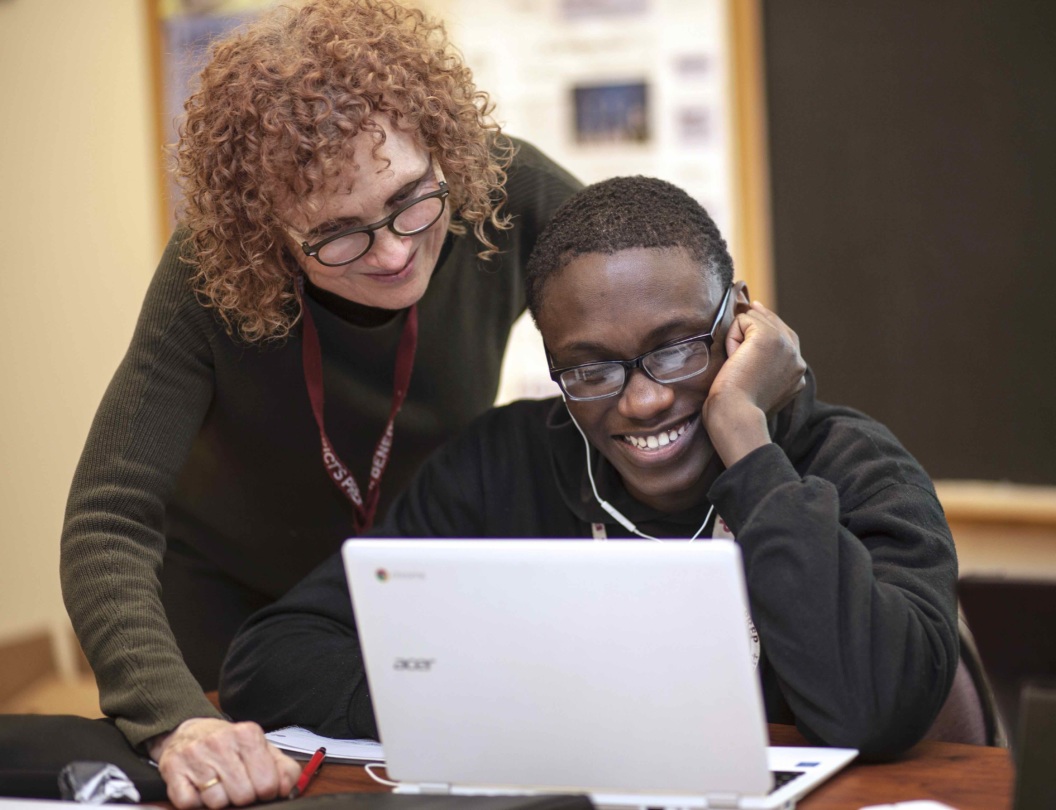
Why all students need news literacy
It’s a sad day when students at two highly regarded universities are unaware of how journalism is properly practiced. This lack of understanding extends to the First Amendment’s protections for speech, assembly and the press and shows how our middle schools and high schools must do a better job of preparing young people to understand and interpret what they’re reading, watching, hearing — and experiencing.
Earlier this month students at Northwestern University received a written apology from the staff of The Daily Northwestern, who covered a speech on Nov. 5 by former Attorney General Jeff Sessions and a protest of his appearance. One student used the phrase “trauma porn” to describe a photo taken by a Daily photographer that showed her on the ground after police and protesters clashed. Other students objected to The Daily’s reporters using numbers listed in the student directory to send texts asking if they would be willing to be interviewed.
College dean weighs in
Before long, the photographer deleted tweets that included photos, and a few days later the student journalists issued an apology. Northwestern University is home to the well-respected Medill School of Journalism, Media, Integrated Marketing Communications, and its dean, Charles Whitaker — along with journalists around the country — rightly took issue with both the student protesters’ lack of understanding of how journalism works and the student journalists’ decision to apologize. “The Daily had an obligation to capture the event, both for the benefit of its current audience as well as for posterity,” Whitaker wrote in a statement on the Medill website. (The Daily is not affiliated with Medill; it is an independent student-staffed publication that serves both the campus and the surrounding city of Evanston, Illinois.)
Harvard Crimson controversy
A similar situation, with a different outcome, took place at Harvard University in September, when the student-run daily newspaper, The Harvard Crimson, covered a campus protest calling for the abolition of U.S. Immigration and Customs Enforcement (ICE). The report on the protest included the sentence “ICE did not immediately respond to a request for comment Thursday night.” That statement tells readers that the reporters have done their due diligence to give individuals and institutions mentioned prominently in their articles a chance to respond — especially if those individuals or institutions are being criticized.
The student advocacy group that organized the protest denounced The Crimson for requesting comment from ICE. Crimson editors met with the group to explain the journalism principles that guided their actions. Several days later, the student activists started an online petition condemning The Crimson, asking for an apology and demanding that the publication change its policy about contacting ICE. In response, The Crimson published “a note to readers” the following week, standing by the decision to ask the agency for comment: “We seek to follow a commonly accepted set of journalistic standards, similar to those followed by professional news organizations big and small.” On Nov. 10, Harvard’s Undergraduate Council voted to support Act on A Dream’s concerns about the Crimson.
Journalism standards must apply
Student journalists are in a difficult position. A Nov. 13 article in The New York Times (“News or ‘Trauma Porn’? Student Journalists Face Blowback on Campus”) observed that they are “struggling to meet two dueling goals: responding to the changing expectations of the students they cover, particularly from those on the political left, while upholding widely accepted standards of journalism.”
While college journalists may find themselves in a tough spot, I believe that they must follow the basic rules of journalism — even when doing so may offend their fellow students.
These two examples illustrate how a failure to understand the role and practice of journalism is undermining it — in these instances, with the outcry toward, and pressure on, the student journalists coming primarily from the left. Whitaker underscored this point on Nov. 17 when he appeared on Reliable Sources, noting that the public is unaware of basic processes involved in practicing responsible journalism or reporting in a balanced way. The events at Northwestern and Harvard underscore “the need for us to embark on a campaign of media literacy,” he said.
A threat to democracy
They also illustrate two patterns: of seeking to shut down coverage that makes people uncomfortable and of intimidating journalists for simply doing their jobs. This open hostility has been codified by public officials and others who call journalists the “enemy of the people” and assail as “rude” reporters’ questions about difficult issues.
Moreover, if students do not understand the vital role that journalists play in independently and accurately reporting events without acting as advocates for any side or participants in a conflict or controversy, they will neither trust nor seek out quality news sources in the future.
And they demonstrate the threat to democracy that comes when we turn away from, or obstruct, the flow of information about issues and events that affect our communities.
Here’s where news literacy education can help, especially in the years before young people head off to college, or the military, or their first full-time jobs. Arming students with news literacy skills gives them a recognition and appreciation of standards-based journalism, along with a more profound understanding of the First Amendment and its crucial role in our democracy.
News literacy education teaches students to think for themselves, seek out credible information and sources, look the world full in the face and not turn away from what might make them uncomfortable.
But teaching these skills isn’t solely the responsibility of middle schools and high schools; journalists need to do a better job of demystifying how they do their work so the public has a better understanding of what they do and why they do it. Ultimately, this will strengthen our democracy by creating greater demand for journalism that informs us — and that holds officials accountable.
